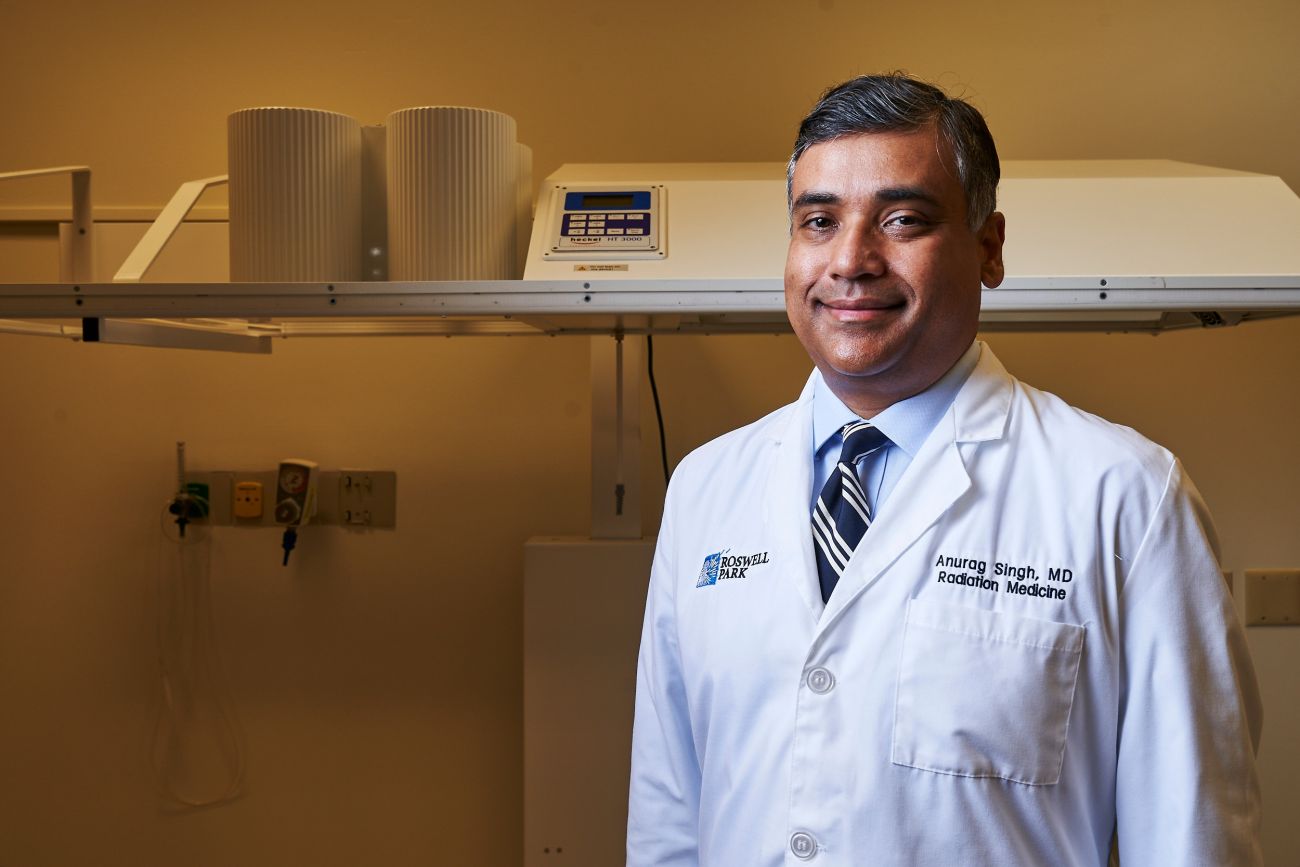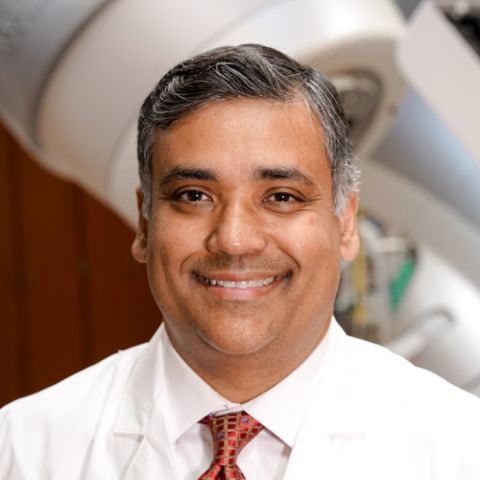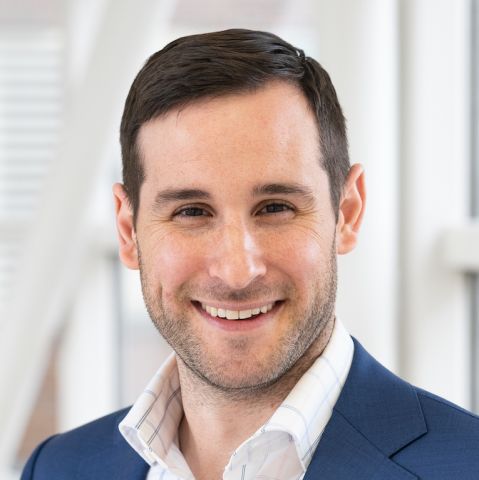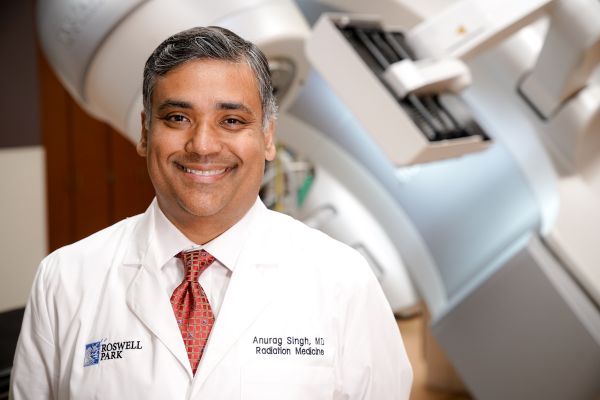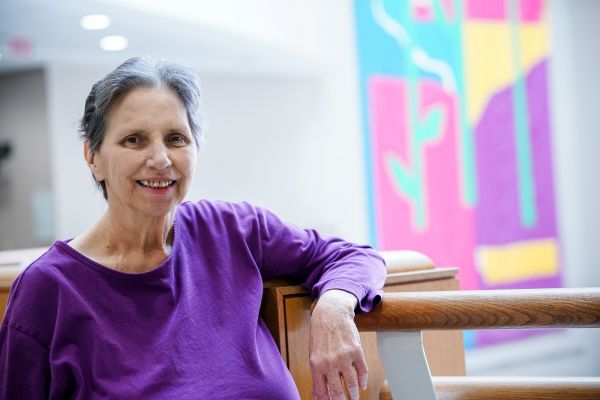Cancer patients face several fears upon being diagnosed, including concerns about their own health, whether they can continue to work, and the well-being of their families.
Another big worry is about how they will pay for their cancer treatment. Will their health insurance cover the costs? What if they don’t have health insurance?
A team of Roswell Park Comprehensive Cancer Center physicians has published a study showing the importance of financial counseling for cancer patients to help them avoid “financial toxicity,” or the worsening outcomes after treatment that one group of patients experienced.
The study, published in MDPI’s Cancers, builds on two earlier studies that showed how chronic stress affects cancer patients’ immune systems and how financial worries can threaten their survival.
For this study, the team surveyed nearly 400 patients with head or neck cancer diagnoses who were receiving radiation and chemotherapy. The patients provided baseline and post-treatment information regarding their financial difficulties.
Anurag Singh, MD, Director of Radiation Research at Roswell Park, said the patients who elected to receive financial counseling during treatment reported significantly less worsening of financial difficulty scores at the end of treatment than those who did not.
“This is the first time that financial counseling has been shown to actually help cancer patients,” Dr. Singh says. “Providing a dedicated financial counselor resulted in reduced financial difficulty.”
Financial counseling a viable approach
Based on the findings, Dr. Singh noted the employment of a financial counselor may be a viable approach for cancer hospitals and centers that would begin to address financial toxicity.
The study’s first author, Mark Farrugia, MD, PhD, of Radiation Medicine, agreed.
“Financial concerns resulting from cancer treatment can have a serious impact on patients’ lives,” he says. “While the cause is multifactorial, financial counseling offers a practical, hospital-based solution to help address this problem.”
Drs. Singh and Farrugia said the study has propelled Roswell Park, which offers financial counseling to all patients, to explore ways to proactively inform patients about those services.
Reach out to Roswell Park financial counselors
Currently, Roswell Park’s financial counselors are available to help all patients who may have difficulty paying for services and treatments. Our social workers also may be able to connect patients with financial assistance programs in the community to assist with basic needs and other expenses related to treatment.
Patients may call 716-845-4782 to speak with a counselor, who can assess their circumstances and direct them to helpful resources, such as applying for Medicaid, financial aid for help with copays and health insurance programs.
Patients who have no income will likely be eligible for Medicaid. Our financial counselors can help determine if they are eligible and guide them on how to apply. Patients also may apply online through the New York State of Health plan marketplace, or by phone at 1-855-355-5777.
Patients who are employed should make sure they are enrolled in their employers’ health coverage. If they are unemployed or work for an employer that does not offer insurance, they can apply for insurance on the New York State of Health plan marketplace.
Roswell Park also has a financial assistance program that patients may be eligible for to help with copays. Some patients on chemotherapy may be eligible for other copay assistance programs to help with chemotherapy drug costs. Payment plans through the billing office are also an option.
Dr. Singh credited several colleagues with the success of the study, including Michael Kuettel, MD, PhD, MBA, Chair, Department of Radiation Medicine; Kellie Boyd, Revenue Cycle and Compliance Administrator in the department; and Erica Innocent, Operations Coordinator at Roswell Park.
Paying for cancer care
What’s important is that you do not sacrifice receiving the highest quality, most comprehensive care possible because of the cost. It’s complicated, but we can help.
Learn MorePrevious research looked at effect of chronic stress on cancer patients
This study followed two other investigations by Dr. Singh. The first showed how chronic stress affects patients’ immune systems.
That research uncovered a major molecular and immunological pathway that appeared to underlie the association between how much stress an individual is experiencing and how they respond to cancer therapy.
As a result, Dr. Singh and his team suggested that blocking a particular receptor may make radiation and chemotherapy work better, boost patients’ immune system and possibly reduce metastasis, or spread of a tumor to a different part of the body.
Another study on how financial worries affect cancer patients’ survival rate found a definitive answer.
“Does financial worry impact survival? The answer is resoundingly yes,” Dr. Singh says. “If you are worried about your finances, your risk of dying is roughly double.”
All three studies reveal that a cancer patient’s perceived quality of life and the internal stresses they experience can actually have a significant impact on their health outcomes.
“We need to make sure we are doing everything possible to maximize quality of life,” Dr. Singh says. “That includes maximizing pain control, minimizing the worries patients have, either financial or otherwise, and doing financial counseling to lessen the fears they may have.”
Dr. Singh and his colleagues continue to look at a variety of other measures that could potentially improve outcomes, including patients’ sleep, their response to cancer treatment and their side effects of treatment.
